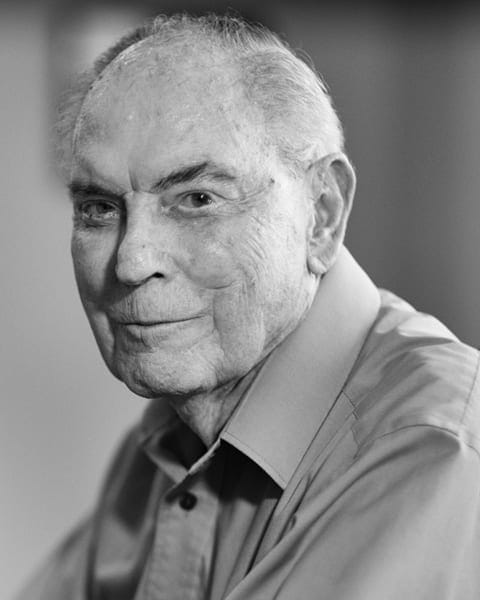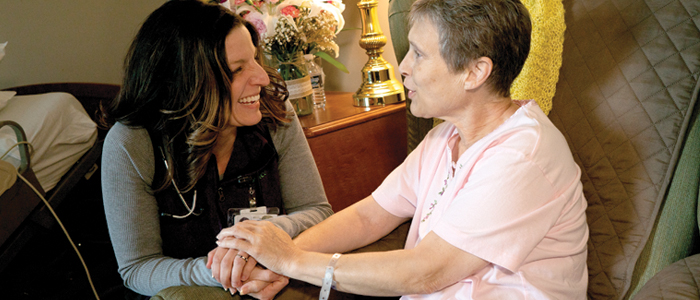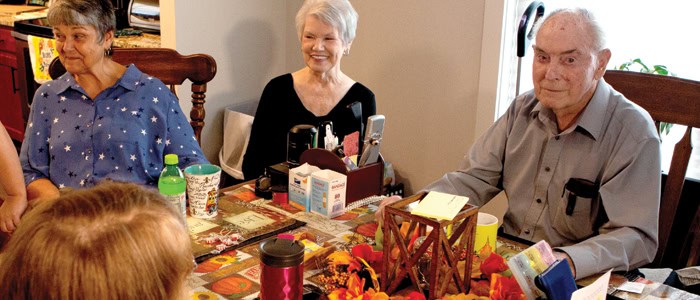Published on April 6, 2019
What Would You Consider a Better Death?

Have you ever asked yourself how you’d like to die or what would make a “better death?” Have you asked those you love? The rapid advancement of medical technology and growth of hospitals over the last few generations created a culture that makes it a virtue to pursue treatments simply because they can be administered, with little regard for quality of life.
However, the tide is starting to turn. There is a movement afoot across the country among people who do not want their final days to be consumed by aggressive medical treatments. They are thinking and talking about what makes a “better death” and planning how to share final moments with those they love. They are giving serious thought to making the best use of their precious time, and many have decided not to pursue expensive and painful treatments when a cure is no longer possible. The topic is gaining steam from popular podcasts to bestselling memoirs and documentaries about death.
As the third hospice in the country, Alive is a pioneer when it comes to helping people transition out of this life. Patients here know their wishes will be respected and their families will be supported when they pass. They are creating their own version of a good death.
Sheila Didn’t Want to Waste Any More Time

Pictured: Alive NP Debbie chats with patient Sheila at Alive’s Nashville residence
Most people don’t seek hospice care soon enough and suffer unnecessarily as a result.* If you have the privilege to meet Sheila Byrd she will tell you to start taking advantage of your Medicare hospice benefits as soon as possible. Sheila spent the last two years in and out of hospitals for aggressive cancer treatments that drained her physically and emotionally but failed to cure her.
When her diagnosis became terminal, she decided to forego further treatment to make the most of her remaining time. A wife, a mother, a grandmother, a dance instructor, a marketer, an artist, a chef, a minister, and a cookbook author, 59-year-old Sheila is a multi-talented woman who isn’t afraid of death and isn’t slowing down for it either.
Although Sheila is receiving most of her care at home, she books herself into Alive’s Nashville residence whenever she needs around-the-clock help to get her pain and nausea symptoms under control. Staying in the residence is a respite both for her and her husband, who works full time while caring for her. She relishes the company of her nurses, rests as much as she needs to, and enjoys the healthy home-style meals that are on the menu.
“Most people don’t come to hospice soon enough. I’ve been in rehab and hospitals, and coming to the Alive residence feels like taking a break to me. It’s peaceful and quiet.”
During a recent stay at The Residence at Alive – Nashville she designed a logo for a volunteer, taught her nurses to line dance, and wrote personalized letters of appreciation to all the Alive staff who cared for her. She also hosted a 13-person church service with live music in her room!
“I want the staff here to know I really appreciate them individually,” she said. “They make time to be present, to sit and learn about who you are. I’m not a number, and that makes a difference to me.”
Sheila wants to die at Alive’s residence. She thinks it will give her family peace of mind and make it easier for her husband to remain in their home after she is gone. She talks openly about her wishes, and her family supports her. She is not ready to leave her home just yet, though. She still needs to paint sunflowers on her barn.
Melvin and His Family Treasure All Their Moments

Melvin Cooper is another patient making every moment count with the help of Alive. Diagnosed with terminal cancer at the age of 86, he declined dialysis because he wanted to be with his family as much as possible instead of wasting precious hours traveling to and from the hospital.
“Treatment might give me a couple more months at the most, but I don’t want to waste time going to the hospital three times a week. My goal for the rest of my life is to spend my time with my family, thanking them, and letting them know I love them.”
A Nashville native who ran away from home with the carnival before joining the Marines, Melvin has traveled the world and visited every state but one. After fighting in the Korean War, he returned home to Music City and photographed album covers for a living before making a career in air traffic control at the Nashville airport. Melvin often expresses his gratitude for the full life he has lived.
“I was married to the right woman for 54 years. I’ve had a life full of activity and action. I’ve made as many friends as I could and loved as many people as I could. You can’t take it too seriously, and you’ve got to enjoy it when you can.”
Today, Melvin lives with his granddaughter, Christy, and her husband. The little girl who used to call him up and ask him to bring her ice cream after dark now brings it to him. His sister often keeps him company during the day, and he still visits regularly with his small group of long-time friends.
“Since we’ve had hospice care in the home we haven’t had to rush him to the emergency room. His symptoms are under control, and he is comfortable,” Christy said.
A man at peace with himself, Melvin is warm and kind. His nurse Tammy says, “As his nurse I feel I’m supposed to make his day better, but with him it’s quite the opposite. He always makes me feel better. He is an absolute pleasure.”**
Ivie Got His Family Back
For Ivie Burns, finding hospice care for his mother, Evelene, meant they got to be a family again before she passed. When she was diagnosed with Alzheimer’s, Ivie’s father, Robert, didn’t hesitate to dedicate his life to caring for her. After her health worsened, though, a fall made it impossible for her to remain at home. Ivie contacted Alive’s Murfreesboro office where his school classmate Jennifer Levi, a lifelong hospice nurse, was running the residence.
“The U.S. is one of the worst countries when it comes to dealing with death. We don’t realize every one of us will pass through that wall. Hospice takes down the veil of mystery and makes it OK to embrace it as a part of life. That’s the beautiful thing about it. The bottom line is they are here to care for the person and minister to the family.”
–Ivie Burns
“The healing begins for the person and family when hospice comes in. Having skilled professionals attending to mom’s every need was humbling. But they were so good at it, they allowed us to relax and just be a family again, which is what we needed most,” Ivie said.
Evelene loved babies and children. She ran a nursery at her church and made sure her kids were popular in college by sending care packages with her signature yellow cake with chocolate frosting. She brought her baby doll to the residence, and one of the night nurses would dress it and set it up in various scenes in the room. To Ivie, this simple act of kindness showed how much attention his mom was getting.
“It was funny and sweet, and not just for my mom. It lightened things up for the whole family,” he said.
The experience was eye-opening for Ivie who couldn’t foresee how good his mother’s death would be surrounded by those who loved her.
*According to a 2017 study in the Journal of the American Geriatrics Society by Thomas Michael Gill, professor of medicine, epidemiology and investigative medicine, and the Humana Foundation professor of geriatric medicine at Yale University.
**Mr. Cooper has since passed. He is greatly missed.
